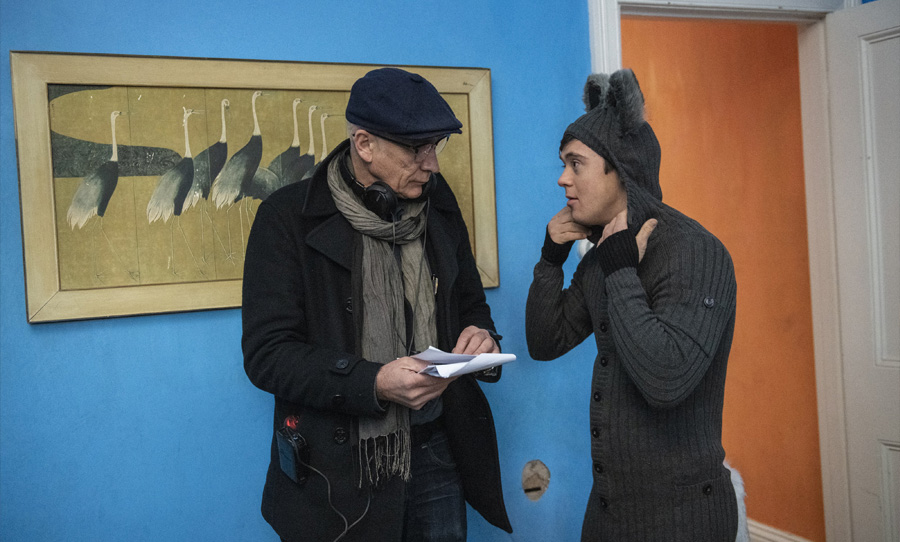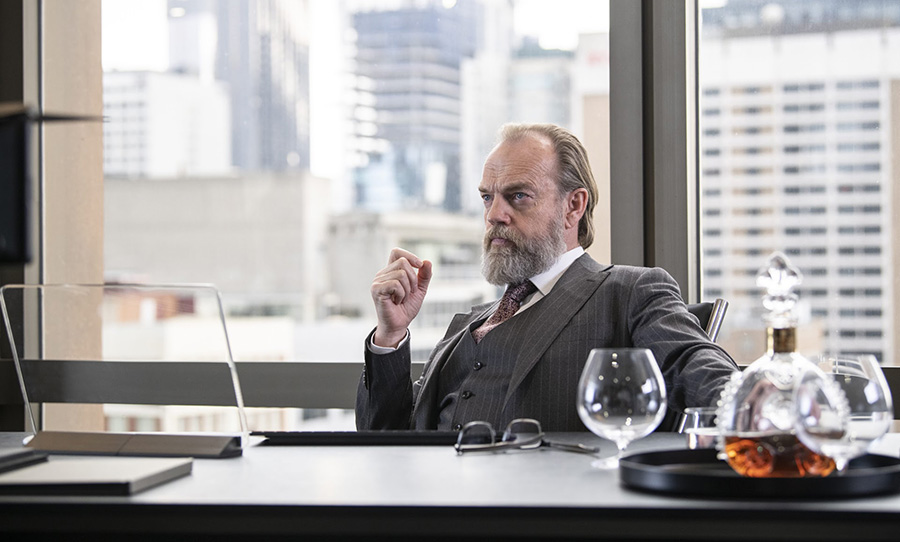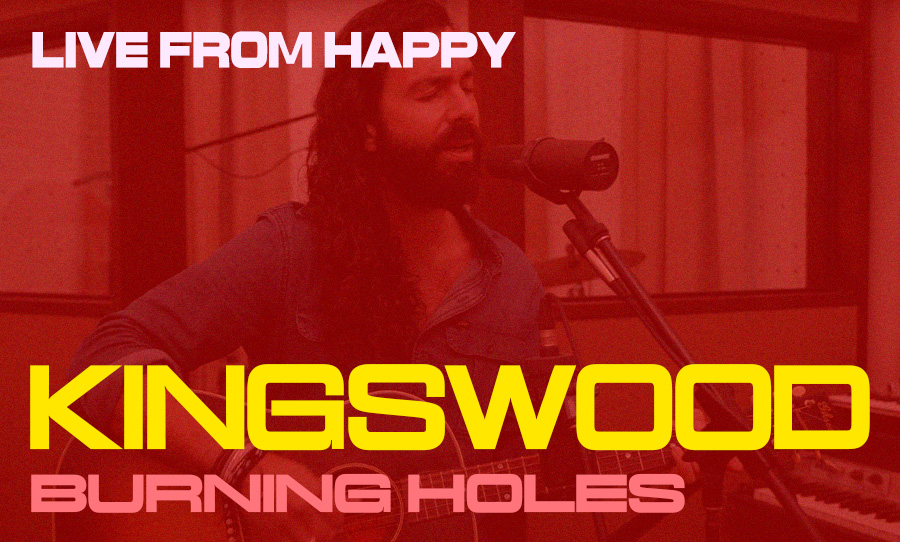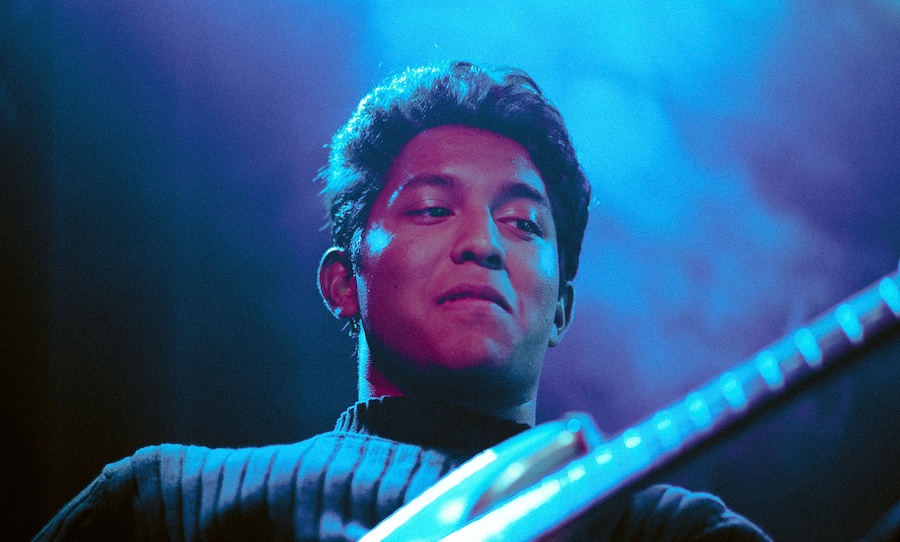In Lone Wolf, director Jonathan Ogilvie examines the pervasiveness of digital surveillance, pasting the bones of a century-old Joseph Conrad novel onto present-day Melbourne.
Jonathan Ogilvie’s film Lone Wolf, which he wrote and directed, calls itself a “cineveillant” retelling of Joseph Conrad’s 1907 novel The Secret Agent. Cineveillant is a term Ogilvie himself coined to “describe films that utilise the tropes of surveillance in their storytelling”, and suitably, Lone Wolf’s engaging narrative is revealed predominantly through security cameras and public surveillance.
Starring Hugo Weaving and Tilda Cobham-Hervey, Lone Wolf recently premiered at the International Film Festival Rotterdam, and is expected to premiere in Australia at the Melbourne International Film Festival in August. Also on Ogilvie’s calendar is a course he teaches at the Australian, Film, Television, and Radio School (AFTRS), where he leverages his extensive experience to educate the next generation of Australian screenwriters.
We recently sat down with Ogilvie to discuss the beginnings of Lone Wolf and its relevance to our world at large, as well as how his teaching has informed his screenwriting practice.

HAPPY: Hi Jonathan, thanks for taking the time. To start could you tell us a little how work started on Lone Wolf?
JONATHAN: I was noticing the increasing amount of surveillance footage included on the nightly News. Both Surveillance of Control – CCTV of crimes and Mutual Monitoring Surveillance – events captured on mobile phone camera. The “little brother/little sister is watching” phenomenon of sousveillance. I started wondering if it might be possible to tell a feature film narrative through both types of surveillance imagery.
HAPPY: What drew you to Joseph Conrad’s The Secret Agent as a piece of work to adapt?
JONATHAN: The Secret Agent was an ideal source for Lone Wolf as a “cineveillant” film because all the characters are under the watchful eye of Scotland Yard. A factor in updating the novel, from Victorian Age London to contemporary Melbourne, involved changing the police eyeball surveillance to police electronic surveillance – “diaries kept by machines” as Hugo Weaving, the film’s Police Minister, states.
HAPPY: What class of film fans do you think will particularly enjoy Lone Wolf?
JONATHAN: A review after Lone Wolf’s world premiere at Rotterdam International Film Festival in February claimed that Lone Wolf is “a fascinating film that will have a secure place in the minds of every cinephile who wants to see something new”. Don’t we all want to see something new? Ipso facto, we can all class ourselves as cinephiles!
HAPPY: You also teach screenwriting at AFTRS. What kind of level should a prospective student be at if they’re looking to sign up to your course?
JONATHAN: At a level at which they have a yearning to tell a story that they consider other people will want to see on screen.
HAPPY: I noticed there’s plenty of AFTRS alumni involved in Lone Wolf. Does some networking happen by default as you’re studying there?
JONATHAN: As I always say, one of the best things you get out of an AFTRS course is the person sitting next to you. Lone Wolf is not exceptional in having a lot of AFTRS alumni involved in the production. This is common to most Australian films because many of the fellow students you meet at AFTRS will go on to be the professionals that you are likely to work with throughout your career.
HAPPY: What has teaching screenwriting taught you about your own practice?
JONATHAN: To know the rules so you can break them.
HAPPY: What’s a part of your course that students might be surprised to find out about?
JONATHAN: That screenwriting is harder than it looks. The degree of craft involved in writing for the screen can be daunting. But if the principles are approached holistically, rather than as a formula, they can be tamed – probably never mastered.
HAPPY: How did the pandemic affect your course, and your work at large?
JONATHAN: Less face-to-face classes, more Zoom sessions. Initially I was apprehensive about online classes but I have found them to be just as engaging and personable as the real thing. In terms of screenwriting, I was fortunate in being able to take advantage of the lockdown and complete the “final” draft of Head South, a post-punk coming-of-age set in Christchurch, New Zealand. Head South stars Hugo Weaving and Ed Oxenbould. It is currently in the late stages of financing.
Find out more about Lone Wolf on the film’s website and Facebook page. Look out for the film’s Australian premiere at the Melbourne International Film Festival in August 2021.
Jonathan Ogilvie’s course at AFTRS, Intro to Screenwriting, runs from March 16th to April 1st. Find out more and enrol here.



